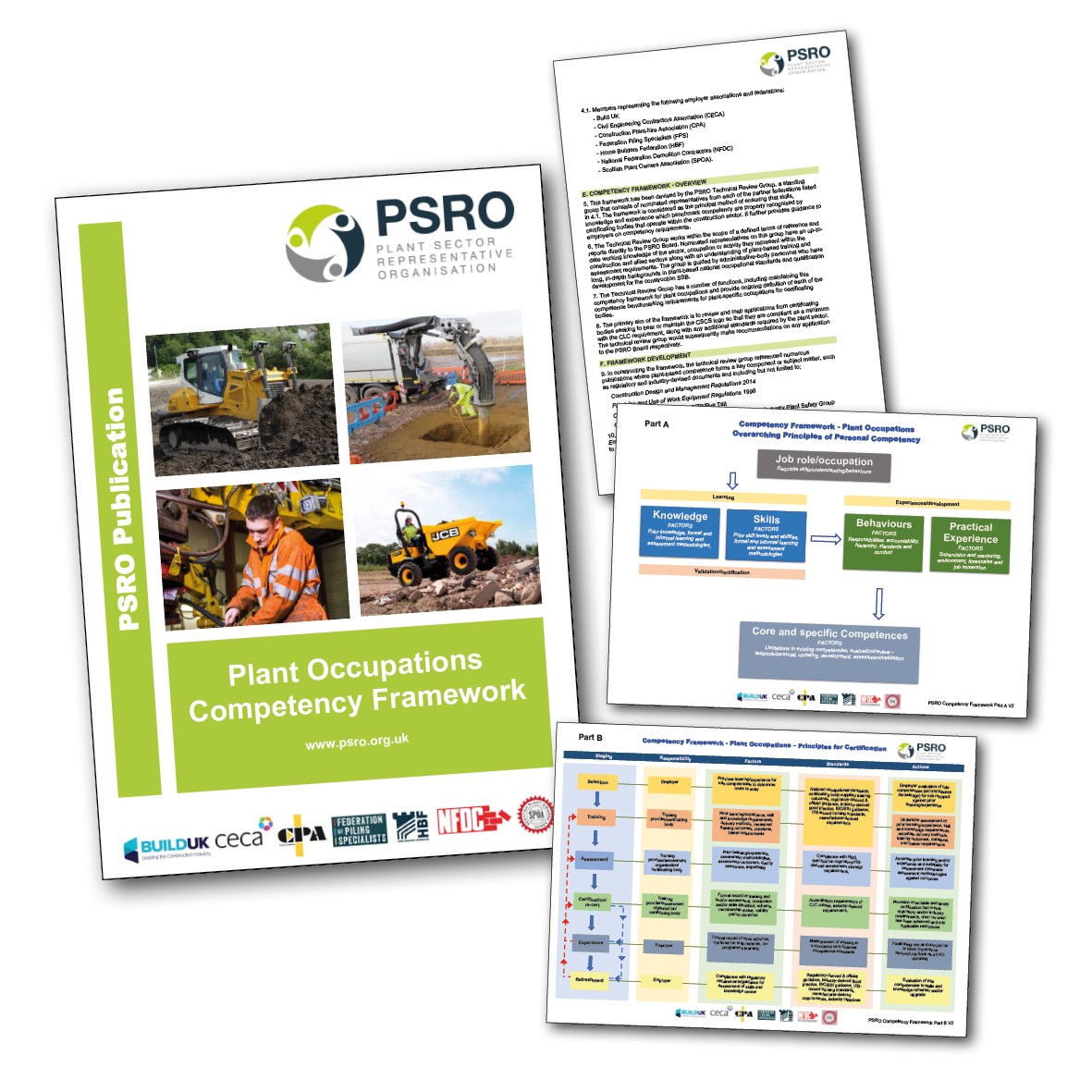A number of construction-based federations have established a plant-focused Sector Representative Organisation (SRO) known as the Plant Sector Representative Organisation (PSRO).
The Construction Leadership Council (CLC) identified the need for employer-focused SROs to work with bodies such as the CITB in agreeing suitable qualifications and any additional sector requirements for use with CSCS-logoed card schemes.
The need for a plant-based SRO was identified due to concerns over the then sale by CITB of the plant card scheme, CPCS, and an ‘increasing proliferation’ of plant-based card schemes being offered to the construction sector.
This need was identified through roadshows led by the Construction Plant-hire Association (CPA) during 2018 and 2019. Employers said they felt it was not clear what the various card schemes were offering, with each having different levels of standards and delivery methods. Bosses also said they felt that there should be national minimum technical and delivery standards set by an industry-led body for all card schemes to abide by.
CPA shared the feedback with other associations and federations who have direct involvement in construction plant operations and in early 2020, formed the Plant Sector Representative Organisation (PSRO).
A board was established, comprising representatives from partner bodies Build UK, Civil Engineering Contractors Association (CECA), Construction Plant-hire Association (CPA), Federation of Piling Specialists (FPS), Home Builders Federation (HBF), National Federation of Demolition Contractors (NFDC), and the Scottish Plant Owners Association (SPOA).
The pandemic initially delayed progress but the PSRO has now been fully established as a PLC.
The principal aim is to represent the users and owners of construction plant and advise both industry and any authoritative bodies on the standards required for the training, assessment and certification of plant-based occupations including operators, maintenance, installation, inspection, hire, delivery and direct-supporting roles.
Two sub-groups have been established: a technical review group and a certificating bodies group.
The technical review group consists of representatives from each of the partner bodies and its role is to advise on skills, training and card scheme certification processes. The group also has representation from unions and the Health and Safety Executive (HSE).
The certificating bodies group was formed to provide card schemes and awarding organisations with a voice to the PSRO board to ensure collaborative working to provide the right level and type of services to industry.
One of the most important tasks of the technical review group was the development of a competency framework. This sets out the principles that benchmark competency, including the components that define the requirements for skills, knowledge, experience and behaviours. It is divided into four sections and defines what the principles are for competency and certification by clarifying each learning journey stage, and what the compliance requirements are at those stages for employers and certificating bodies.
The framework details the compliance requirements for certification bodies to ensure consistency for card schemes wishing to attain CSCS partner card scheme recognition and bear the CSCS logo. The framework does not provide the technical competencies for specific occupations or equipment types, but acts as the ‘signpost’ to what technical standards and processes certificating bodies need to map their training and assessment programmes.
It is a requirement of the CLC that any new card scheme wishing to bear the CSCS logo must demonstrate they have the support of industry, which for plant schemes needs to be sought from the PSRO. Support will only be provided once a scheme’s standards have been benchmarked against the competency framework.
An additional CLC card scheme criteria is that standard setting bodies and the SRO agree the minimum card scheme qualifications and alternatives. CITB and the PSRO have agreed a Memorandum of Understanding (MoU) which sets out how the organisations will work together on the implementation of any relevant requirements of the card scheme criteria. This includes the PSRO in providing assistance with the development of the CITB short-duration plant training standards for plant operators. This has been described as the first such agreement that CITB has drawn up with any SRO.
A dedicated website at www.psro.org.uk provides information on the aims, objectives and current projects of the PSRO.
Kevin Minton, chair of the PSRO board, said, “Feedback from the sector indicated that respect for card schemes is relatively low in terms of assessment and quality assurance and that the variations amongst the card schemes is causing confusion with employers, who have limited time available to understand them. On behalf of the PSRO board members, we’re pleased that the construction sector federations have come together to form the PSRO and are starting to provide overarching solutions to these employer concerns.
“We also acknowledge the co-operation of CITB and of all the card schemes who have joined the certificating bodies group. We’re collectively working together to provide long-term solutions and assurance to the sector and meeting the aim of the PSRO in ensuring the supply of operatives for the plant occupations that possess a level of competence achieved in an efficient and sustainable way.”












